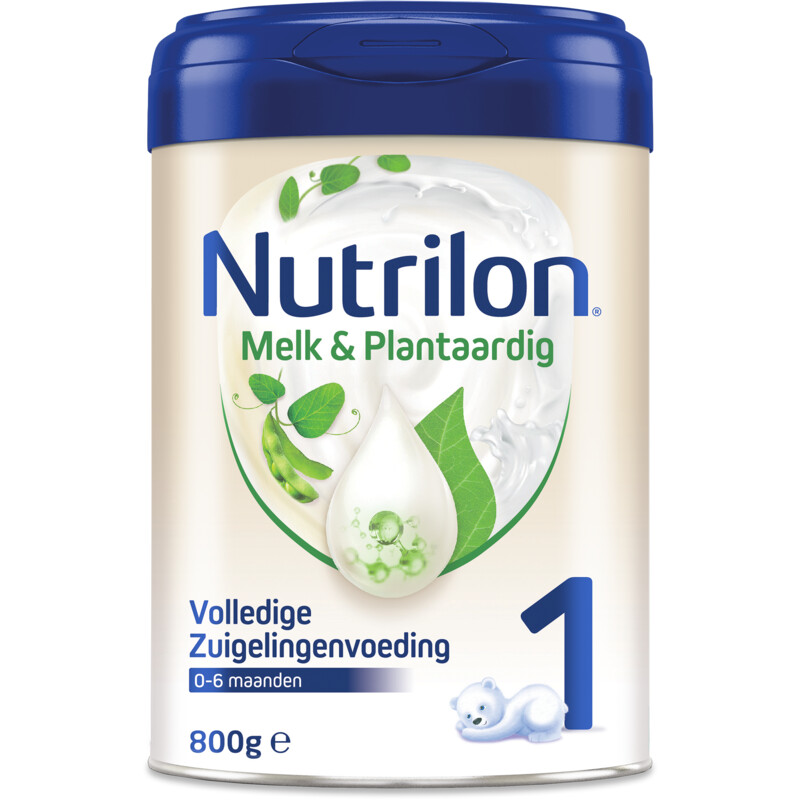Danone has launched a first in the baby formula market: a product that blends dairy protein with plant protein. The dairy giant says that the launch represents “the best of both worlds” and that it will meet the demands of flexitarian parents who want to include more plants in their kids’ diets.
The product is available as stage 1 and stage 2 formula and is made with 60% soy protein and 40% whey and casein. Other ingredients include sunflower oil, coconut oil and rapeseed oil along with algal DHA and chicory root fibre. Danone is careful to point out that the blended formula contains lactose, said to be “an important source of carbohydrates for babies, and an essential nutrient found in breastmilk”.
Labelled "Milk & Plants", and sold under the Nutrilon brand, the product is currently available in mainstream retailers in the Netherlands. The plan is to launch elsewhere in Europe in 2023, then under the global Aptamil brand.
Retailing at €20.49 ($21.19) per 800g, the blended formula is premium priced compared to Nutrilon’s regular formula and most other options on the Dutch market.

According to Danone, the Nutrilon "Milk & Plants" launch was triggered by research which showed that 25% of US households begin to introduce plant-based alternatives to their kids when they are as young as 1-2 years old.
A common barrier to including plants in kids' diets is taste. Plants tend to have an earthy and ‘green’ flavour which young children struggle to tolerate. Front-of-pack messaging promotes the product as having a mild plant flavour, said to help reduce the barrier for future plant-based food choices.
With messages like “every step counts” and “plant-based & sustainable”, sustainability is another selling point. According to Danone, the product has a 30% lower carbon footprint than other products in the Nutrilon range. It is sold in recyclable packaging and is free from palm oil. Danone claims that “more and more Dutch people eat consciously” and the blended formula is presented as a way for parents to follow this trend.
Blending dairy with plants is not new in the adult nutrition market but it doesn't have a track record of success. Hybrid milks have been around for a few years, but finding the right targeting and marketing strategy has proven tricky. America’s largest milk producer, Dairy Farmers of America, launched hybrid milks in 2019 (see NNB July 2021) and struggled with it for two years before discontinuing the line.

